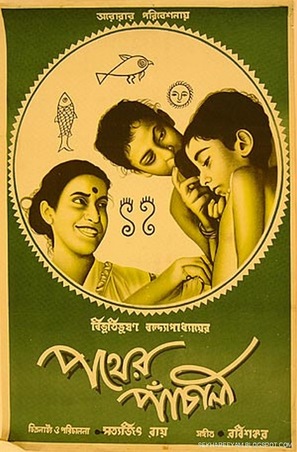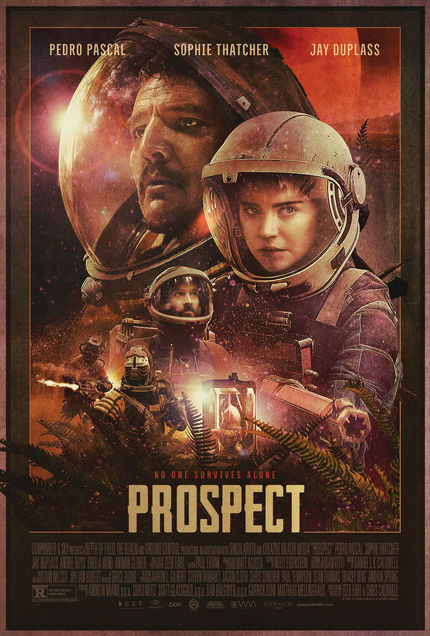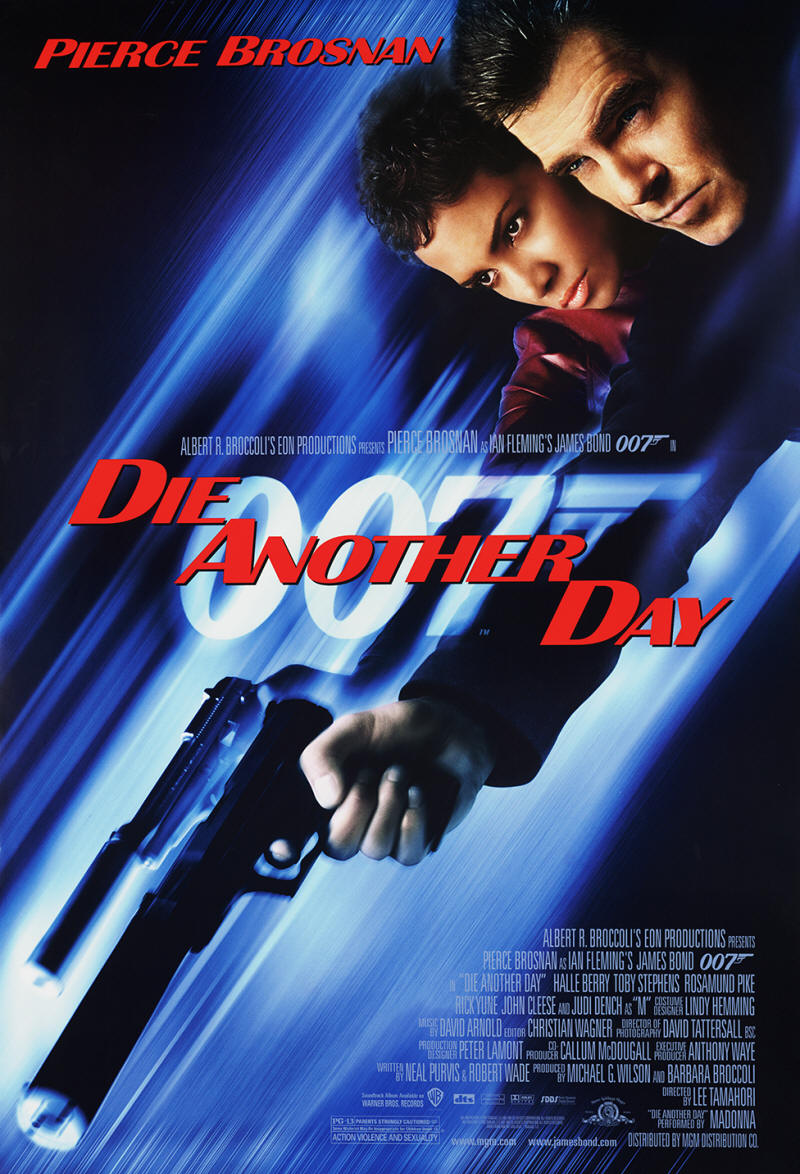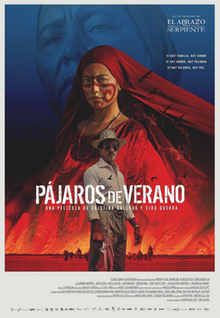
Coming off of Goldeneye, I'm shocked at how incredibly bland this was.
Someone's trying to play 2 international superpowers against each other to spark WWIII...2 potential Bond girls and the one that makes the most sense gets killed early on...3rd time I've seen this movie at this point.
 Tomorrow Never Dies is easily the best Bronson movie. The bike chase alone is better than the rest of his run combined. Michelle Yeoh was awesome, and the plot is one of the more believable super villain plots that actually is more pertinent today than it was when it was made.
Tomorrow Never Dies is easily the best Bronson movie. The bike chase alone is better than the rest of his run combined. Michelle Yeoh was awesome, and the plot is one of the more believable super villain plots that actually is more pertinent today than it was when it was made. I've been raiding my library's foreign bluray section this year, so over the past week I watched a series of movies from different parts of the world, but still quite connected.
First up was
Bicycle Thieves (1948)

A seminal classic of Italian film, and specifically the Italian neorealism movement, this was the original topper of Sight & Sound's greatest movie of all time list in 1952, and is still in the top 50 as of their most recent rankings in 2012. It focuses on a father's struggle to support his family in post-WWII Rome after a bicycle required for his job was stolen. Most of the movie is then wandering around Rome on a mission to get the bike back. Everything is shot on location, almost all of the actors were either amateur actors or not actors at all, it uses natural lighting, and is a pretty bleak portrayal of contemporary life in Italy where people were pawning their bed sheets to make ends meet. It's one of those things where it's kind of hard to judge it for what it is, because its stylistic influence has been so pervasive over 70 years that it's easy to overlook this as just another one of those kind of movies. Kind of the same way people react to seeing Citizen Kane for the first time today.
I followed this up, coincidentally, with the Apu Trilogy, whose director Satyajit Ray claimed Bicycle Thieves as a big influence on his work, and Italian neorealism was the inspiration for the Indian Parallel Cinema movement.
Pather Panchali (1955)

The first in the trilogy based on the semi-autobiographical works of Bibhutibhushan Bandyopadhyay, much like Bicycle Thieves, this was shot with next to no budget in real locations with mostly amateur or first time actors. While the movies are known as the Apu Trilogy, to me this and the next movie are really about Apu's mother, Sarbajaya. In this movie, Apu isn't even born for the first act, and the rest of the time he's just a small child who has no real character, he just runs around observing the older characters. I was drawn to Sarbajaya's situation, and the film seems to always come back to her as well: Poor as shyt in her husband's ancestral village, her husband is a fukking loser who does nothing at home and doesn't seem to be doing much of anything to support the family (he eventually just straight up leaves for 5 months looking for a better job, but doesn't even tell his wife ahead of time, he just leaves her a note and the family of course falls even deeper into debt), she's also housing either her or her husband's old as fukk aunt who constantly steals from them and lies and teaches their daughter to do the same thing which impacts Sarbajaya's standing in the village as a result. Then she gets pregnant and has Apu, so now she's got an extra mouth to feed, she's always tired, always stressed out, loving but not doting, she defends her kids but they also really piss her off sometimes. She's a deeper and more complex female character than most anything you see in 2019, and this is an Indian movie from 1955. There's really not much of a plot, it just follows the lives of a family in a tiny, poor village in rural Bengal.
Aparajito 1956

Despite coming right after Panther, this is a huge step up in terms of film making from Ray. His grasp on the visual language of film has expanded exponentially, there's an actual plot, and this is the true classic to me. At the end of Panther, just as the father returns to the family, the daughter dies. The family then moves to Varanasi, still poor, but doing better as the father is having some success as a priest in the bigger city. However, shortly after he dies as well, leaving Sarbajaya once again on her own to raise Apu, now in a city with no support system. They eventually have to move back to Bengal to live with an older relative of hers, and young Apu begins training to be a priest as well. However, he decides he wants to go to school and it turns out that he's a gifted student, and after that he becomes an actual character as his mind expands. The second half of the movie has a time jump as Apu is about to head off to college in Calcutta, three hours away, and the strife it causes between he and his mother. Once again, to me, Sarbajaya is the main character, and this movie perfectly captures that awkwardness, sadness, and resentment of your kids moving away and leaving you behind, and the conflict of when you try to come back home after experiencing freedom. In the end, Apu gets increasingly lazy about his visits and writing and comes back to find his mother died alone and heartbroken her son had left her behind. This is the best of the trilogy for sure, and I'm really amazed that the character of Sarbajaya isn't held up as feminist icon in cinema.
Apur Sansar (1959)

This wasn't a planned sequel and only came after a few years of people asking Ray if he was going to make another. He decided to and it was met with the same acclaim as the previous two, but I think it's easily the worst of the trilogy and might even be the first example of the 3rd movie in a trilogy always being the worst. Another time jump sees Apu post graduation, but unable to find steady work. He's months behind on his rent, yet trash talks his landlord about it. He wants to be a writer like his father wanted to be and so begins work on a mostly autobiographical novel, but never gets around to finishing it. Through a series of silly events, he ends up married to a rich girl, but resents her being rich and thinks she resents him being poor. She gets pregnant and spends the last 2 months of her pregnancy with her family, but dies during childbirth. This sends Apu into a deep depression and he wanders around India with his beard of despair, throwing away the novel he had been working on, and it takes him FIVE fukkING YEARS to go see his son for the first time. It turns out Apu grows up to be a mooch, who takes no responsibility for anything his entire life. He lets his mom die alone because he's too lazy to go see her. His wife dies during birth and he doesn't even know about it because he was too lazy to write and go visit her like he promised. He had free rent in school, he's not paying his rent as an adult and taunts the landlord about it. He lets someone else raise his son. It's a very unsatisfying conclusion, even though the trilogy ends with Apu essentially kidnapping his son to start a new life. He grew up to be such an unlikable, lazy, freeloading a$$hole that it almost taints the previous movies to me.
Honestly I'd skip The World of Apu. It wasn't intended to be made in the first place, and as such it feels like a late addition without much thought put into it. The first two movies, especially the second, are should/must sees if you're a cinephile and care about the history of film. This last one is X-Men The Last Stand tier.







 , both Halle Berry's acting and character add absolutely nothing to the film, and this one ended up siller than Roger Moore's worst at times.
, both Halle Berry's acting and character add absolutely nothing to the film, and this one ended up siller than Roger Moore's worst at times. 



 way. Got that great linen suit, though
way. Got that great linen suit, though  . The Brosnan era as a whole is a massive disappointment. Dalton should have got another movie. The other day I was watching The Hunt For Red October and thought about how amazing a 3rd Dalton movie with Connery bumped up to M being an absolute dismissive c*nt to Dalton in true Bernard Lee fashion could have been.
. The Brosnan era as a whole is a massive disappointment. Dalton should have got another movie. The other day I was watching The Hunt For Red October and thought about how amazing a 3rd Dalton movie with Connery bumped up to M being an absolute dismissive c*nt to Dalton in true Bernard Lee fashion could have been. 

 murked Alicia on her own shyt
murked Alicia on her own shyt


 I don't think the background of filmmakers is always important to the movies their making. For instance, no one gives a shyt about the life story of whatever director for whatever DC/Marvel movie is 3rd in the line up this year. But I think it's pretty important for the movies Bergman was making, so I thought I'd touch on it a bit before I get into the movies I've watched this year. He was a weird dude with an obsession with death (but not the macabre), full of existential angst, and had a real beef with God for a while.
I don't think the background of filmmakers is always important to the movies their making. For instance, no one gives a shyt about the life story of whatever director for whatever DC/Marvel movie is 3rd in the line up this year. But I think it's pretty important for the movies Bergman was making, so I thought I'd touch on it a bit before I get into the movies I've watched this year. He was a weird dude with an obsession with death (but not the macabre), full of existential angst, and had a real beef with God for a while.



